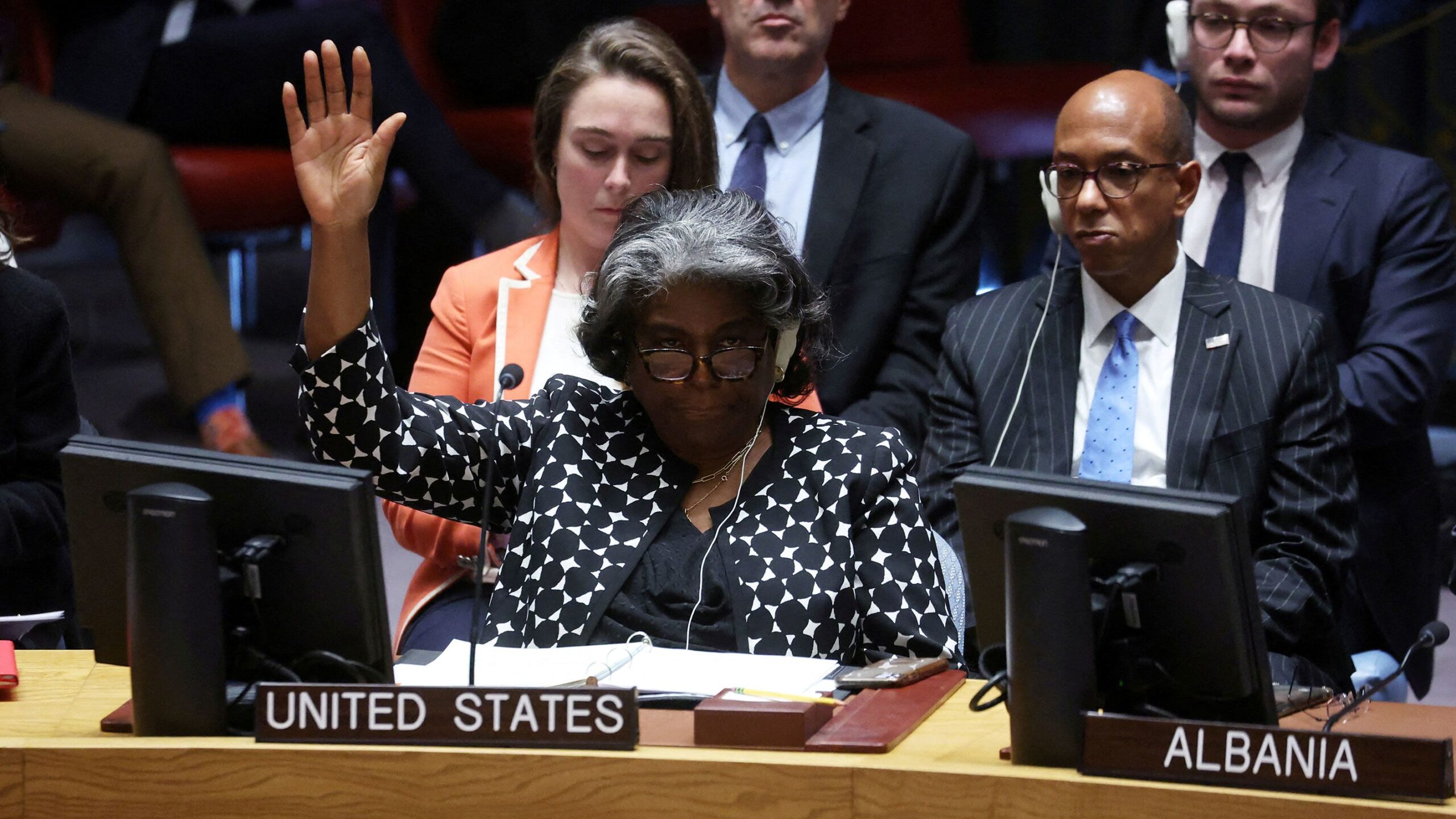The United States exercised its veto power at the United Nations Security Council, blocking a resolution aimed at securing an immediate ceasefire in Gaza. The decision, which drew swift condemnation from allies and adversaries alike, underscores the escalating tensions surrounding the Israeli-Palestinian conflict and places President Joe Biden’s administration under intense scrutiny.
The proposed resolution, championed by Algeria and supported by numerous member states, sought an urgent cessation of hostilities in Gaza, where civilian casualties continue to mount amid relentless airstrikes and rocket attacks. However, Washington’s rejection of the resolution, coupled with its presentation of an alternative draft, has injected fresh complexity into the diplomatic discourse surrounding the conflict.
Notably, the US-crafted draft, while acknowledging the need for a ceasefire, refrains from stipulating an immediate cessation of hostilities. This nuanced approach has drawn criticism from Palestinian representatives and other stakeholders who perceive it as a departure from previous efforts to address the crisis.
Palestinian envoy to the UN, Riyad Mansour, lambasted the US veto as “reckless and dangerous,” highlighting the urgency of halting the violence that has engulfed the region. Conversely, US Ambassador Linda Thomas-Greenfield defended the veto, asserting that the proposed resolution risked undermining delicate negotiations, particularly concerning the release of hostages held in Gaza.
The international response to Washington’s veto has been resoundingly critical, transcending traditional geopolitical divides. China and Russia, perennial critics of US policy in the region, were joined by US allies such as France, Malta, and Slovenia in condemning the decision. Slovenian representative Samuel Zbogar emphasized the imperative of ending civilian suffering, while French Ambassador Nicolas de Riviere underscored the intolerable humanitarian toll exacted by the conflict.
Meanwhile, Algeria’s envoy, Amar Bendjama, lamented the Security Council’s failure to send a decisive message in support of the Palestinian cause, urging member states to reflect on their moral obligations in the face of the humanitarian crisis.
The timing of the US veto, amid reports of Israel’s imminent incursion into Gaza, has heightened anxieties over the escalation of hostilities. With mounting pressure on Israel to exercise restraint, including from its staunchest ally, the United States, the international community finds itself at a critical juncture in efforts to de-escalate the conflict.
However, amidst the diplomatic maneuvering and geopolitical posturing, questions linger regarding the true intentions behind Washington’s alternative draft resolution. Some observers speculate whether the US strategy is aimed at eliciting a veto from opposing powers, thereby deflecting attention from its own veto exercise.
Nonetheless, the introduction of a counter-resolution by the United States has injected a new dynamic into the diplomatic calculus, potentially unsettling Israeli policymakers and underscoring the complexities of navigating the volatile terrain of the Israeli-Palestinian conflict.
As the crisis in Gaza continues to unfold with profound humanitarian implications, the world watches with bated breath, hoping for a diplomatic breakthrough that can bring an end to the cycle of violence and pave the way for sustainable peace in the region.



